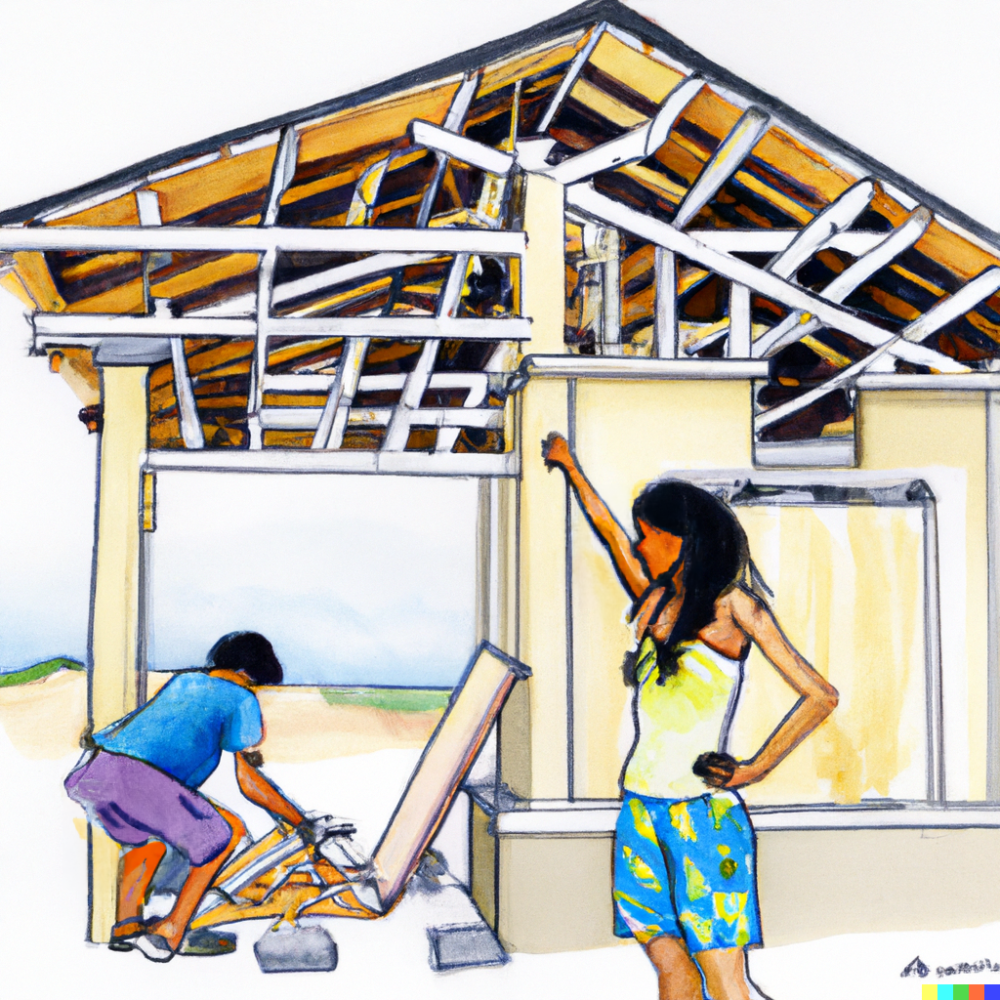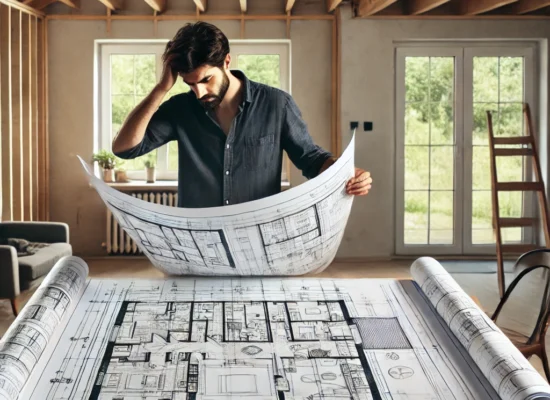Everything You Need to Know About Being an Owner-Builder in Hawaii
If you’re planning on building your own home, you may have considered becoming an owner-builder. An owner-builder is someone who takes on the responsibility of being the general contractor for their own construction project. Although it may seem like a way to save money, it comes with risks and responsibilities. In this article, we’ll discuss what an owner-builder is, what their responsibilities are, and what risks they may face.
What is an Owner-Builder?
An owner-builder is someone who obtains their own permits and takes on the responsibility of being the general contractor for their construction project. A homeowner with an “owner-builder” permit is treated as the general contractor for the project and is responsible for ensuring the project meets county building codes, complies with the permitting process, including having the project inspected by a county building inspector, and supervising the construction.
Risks and Responsibilities of Being an Owner-Builder
Building Permit Process
Building permits exist to ensure buildings meet minimum safety and structural standards. Making sure a structure meets minimum construction standards can be the best way to avoid fire, structural failure, or injuries caused by any potential accidents. The rules for when a building permit is required vary from one county to another. Certain areas (like steep slopes) and certain conditions (like flood zones) may have additional permitting requirements.
State Licensing Law Requirements
The State of Hawaii requires that a contractor’s license is necessary for any project where the labor and materials are over $1,500 or any project that requires a building permit. If the project involves electrical work, a homeowner may also need to hire a licensed electrician, and if the project involves plumbing, a homeowner may also need to hire a licensed plumber.
Restrictions on Sale or Lease
Hawaii’s owner-builder law is designed to give homeowners who want to be their own contractors a way to get a permit. However, the law is limited to owner-occupants. Therefore, when built under the owner-builder exemption, a structure can only be used by the owner-occupant and cannot be sold or leased for a year following the final inspection. An owner-builder can apply to the Contractors License Board for a hardship exemption, such as the need to sell a property because of a divorce.
Penalties for Violating State Law
The fines for violating State owner-builder laws are steep – homeowners who fail to comply with owner-builder requirements can be fined up to $5,000 or 50% of the permit value of the work to be performed, whichever is greater. Subsequent violations can result in a fine of $10,000 or 60% of the permit value of the work to be performed, whichever is greater. Homeowners who violate the owner-builder requirements are also prohibited from applying for new owner-builder permits for three years.
Can I Hire Anyone to Work on My Project?
As an owner-builder, it’s your responsibility to make sure anyone working on the project is properly licensed. This includes architects, engineers, subcontractors, electricians, and plumbers. You are also responsible for supervising, scheduling, and paying them. Any person working on the project who is not working as a subcontractor must be an employee. As the employer, the owner-builder is required to comply with employment and tax laws, which includes deducting Federal Insurance Contributions Act (F.I.C.A.), withholding taxes, and providing workers’ compensation.
Mistakes Can Be Costly
Being an owner-builder is a significant responsibility, and you need to be prepared to take on this role. It can be tempting to cut costs, but mistakes can be costly. Any construction project has many moving parts and requires experience, knowledge, and organization. If you are not familiar with the building process, it may not be the best decision and this can put the owner-builder at risk for mistakes that can be costly in both time and money. Additionally, owner-builders must be prepared to take on the liability of the project. If there are accidents or injuries on the worksite, the owner-builder may be liable for any damages that result.
Another risk for owner-builders is the potential for mistakes during the construction process. Even small mistakes can add up to big expenses. For example, if a mistake is made during the framing process, it may not be noticed until much later in the project. Fixing the mistake may require significant time and resources.
Another important factor for owner-builders to consider is the time commitment required for a successful project. Building a home or completing a renovation project requires a significant amount of time and effort. For many people, this commitment may be unrealistic, especially if they have other work or family obligations.
Despite these risks and challenges, there are many advantages to being an owner-builder. By taking on the role of general contractor, owner-builders can save money on the cost of hiring a contractor. Additionally, owner-builders have more control over the project, and can ensure that their vision is realized.
Ultimately, the decision to become an owner-builder is a personal one. For those who are willing to take on the risks and responsibilities, being an owner-builder can be a rewarding and fulfilling experience. However, it is important for owner-builders to be prepared and to take the necessary steps to ensure that their project is successful. This includes understanding the permitting process, complying with state laws, and hiring qualified and licensed contractors.
In conclusion, becoming an owner-builder is a significant decision that requires careful consideration. The risks and responsibilities associated with being an owner-builder should not be taken lightly. However, for those who are willing to put in the time and effort required, being an owner-builder can be a fulfilling and rewarding experience. As with any construction project, it is important to be prepared, to understand the process, and to work with qualified professionals to ensure that the project is completed safely and to code.
 Copyright secured by Digiprove
Copyright secured by Digiprove 



